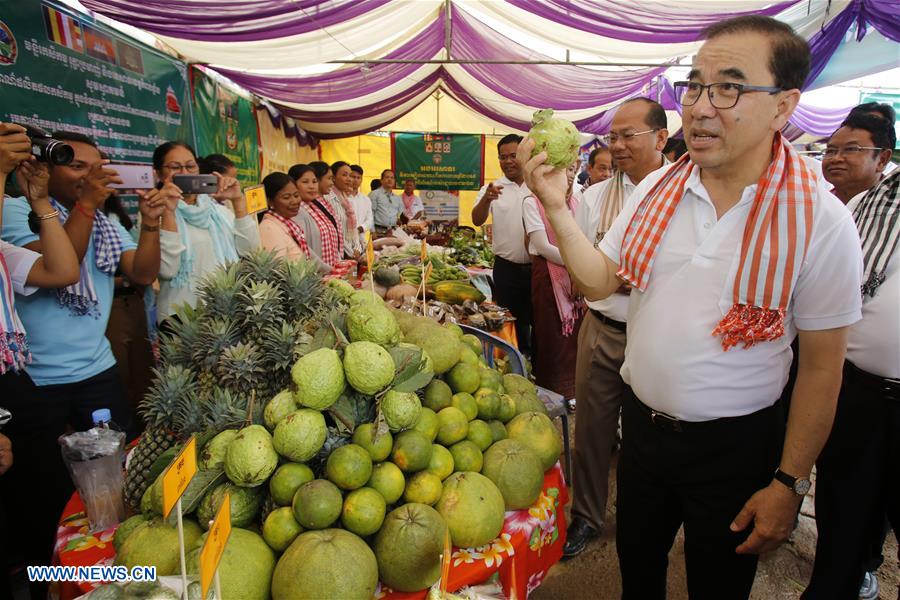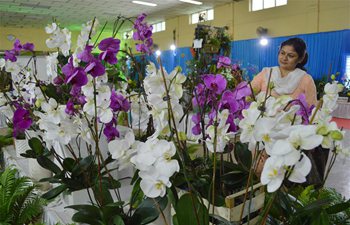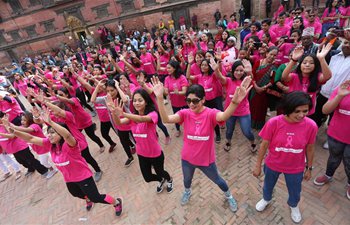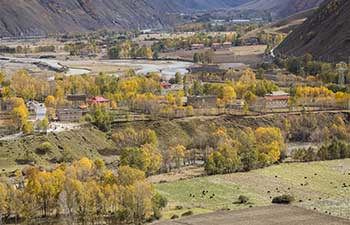
Cambodian Agriculture Minister Veng Sakhon (1st R, front) visits an exhibition of local fruits during the celebration of the World Food Day in Pursat province, Cambodia, Oct. 19, 2019. Cambodia and the United Nations' Food and Agriculture Organization (FAO) celebrated the World Food Day in Pursat province on Saturday, reiterating commitment to eradicate hunger in the kingdom by 2030. (Photo by Sovannara/Xinhua)
PURSAT, Cambodia, Oct. 19 (Xinhua) -- Cambodia and the United Nations' Food and Agriculture Organization (FAO) celebrated the World Food Day in Pursat province on Saturday, reiterating commitment to eradicate hunger in the kingdom by 2030.
Speaking to hundreds of participants at the event in Kandieng district of northwestern Pursat province, Cambodian Agriculture Minister Veng Sakhon said the country would achieve "zero hunger" through ensuring sustainable food production, improving nutrition and promoting sustainable agricultural development.
"The government still sees agriculture as one of the important sectors in supporting economic growth, in promoting rural economic development and in improving the livelihoods of the Cambodian people," he said.
According to the minister, globally, more than 820 million people, or roughly one in nine people, are going through hunger, and most of them are living in the Asia-Pacific region.
Alexandre Huynh, FAO representative in Cambodia, said zero hunger and nutrition are always at the heart of FAO's mandate, which is working to ensure that people have access to sufficient and quality food for active and healthy lives.
In Cambodia, FAO has supported the government to develop its National Zero Hunger Challenge Action Plan 2016-2025, he said.
He added that Cambodia is part of the FAO regional Zero Hunger Challenge Initiative through capacity building, technical support for policy dialogue and evidence-based studies on aspects of crop diversity related to dietary diversity and malnutrition.
"It requires all relevant actors, including the government, civil society, UN agencies, the private sector, farmers, academia and every individual to take action now to achieve zero hunger," Huynh said.
"Fighting for zero hunger is not limited to providing sufficient food to eat," he said. "We need to join forces to ensure that everyone has access to safe food with necessary nutrients for a healthy life, so that we can fully address all forms of malnutrition."











